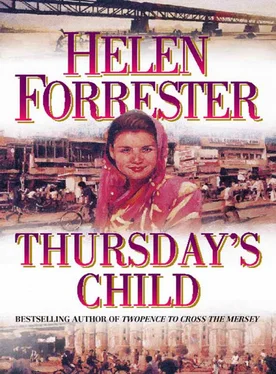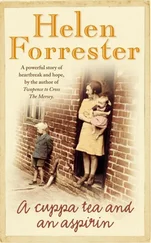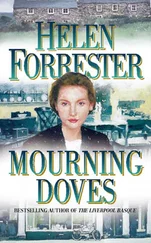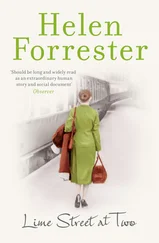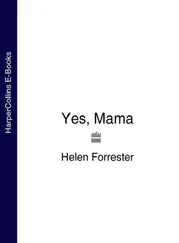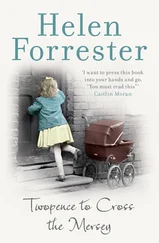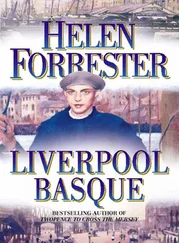Occasionally it was very like torture to have James striding along beside me, looking just as Barney always did, and then to catch his eye and see a different soul, a strange mind, peering out at me; but he was an old friend and I did not have to make a special effort to be pleasant in his company, so I clung to him, and for nearly three years saw him from time to time, either at the various clubs to which he had introduced me or at his mother’s home, which I visited occasionally. His mother welcomed my visits and, presumably, hoped that I would marry him. This solution had not occurred to me and James gave no hint that it had occurred to him; he continued to behave in his usual silently courteous manner and asked nothing except my company. He had other women friends, with some of whom I was also acquainted, but he never showed any particular preference for one of them.
I gradually picked up the fragments of my life and stuck them together again as best I could. The sickening reaction from the effort entailed by the war had, however, set in, and like many others I felt low and dispirited. I had been the only young woman left in our organisation at a time when our work was increasing; the war itself had brought many problems which were not the concern of any particular authority and I often found myself doing work far removed from the care of children. Many were the days when there was no time to eat and many the nights I spent on an old sofa in the office rather than waste time by going home. Once the Japanese war had been brought to a horrifying finish by the atom bomb, however, new social workers were recruited and my hours of work became normal. I should have been grateful for a life once more returned to a peaceful routine, but I found myself intolerably bored and very tired of solving other people’s problems.
In the autumn of 1948, however, James’s love of chocolate caused a sharp change in my life. We were attending a first night at the Royal Theatre, and I had elected to wait in the foyer, while James carried on a delicate negotiation with the girl in the sweet shop next door, for the purchase of a box of rare, handmade chocolates, for which he had not enough ration coupons. I stood idly watching the people arriving for the show. Every tram that stopped outside unloaded a fresh mass of shabby humanity; a few small private cars added their quota of patrons. Dressed in old sweaters, tweeds and raincoats, the women hatless like myself, they poured into the theatre. They certainly did not care much about outward appearances, but I knew they would form an attentive and critical audience.
I had just seen a Duchess slip quietly into the auditorium, chivvied from behind by two students who were afraid of being late, when a voice behind me gushed: ‘My deah, where have you been all these years?’
The voice was familiar, and I turned round quickly, to face a middle-aged woman who was extending a black-gloved hand to me.
‘Bessie,’ I cried, overjoyed at meeting someone I had known before the war. The last time I had seen Bessie she had been in khaki uniform – a sort of female brass hat – but there was nothing of that about her now. Her black suit and frilly, red hat made her completely feminine.
‘My deah, you are just the woman for whom I’ve been looking. Can you dance?’
‘Yes,’ I said blankly.
James came up to us, triumphantly bearing his box of chocolates, and was introduced. The foyer bell rang, and Bessie said hastily: ‘Come and see me, my deah, tomorrow evening at 42 Belfrey Street – the McShane Club. Come at seven.’ She looked about anxiously. ‘Please excuse me – I must find my party.’
She waved one plump hand vaguely in the direction of the front door and tripped across the hall, her high heels clicking merrily on the marble floor, and to my amazement, joined a party of Negroes. She greeted them gaily and vanished with them into the auditorium.
James’s eyebrows lifted, as he asked: ‘Who are they?’
‘No idea,’ I said.
‘Have a chocolate,’ said James, tearing off wrappings.
James had invited a young married couple to join us, and as soon as they arrived we went in to see the play. It was a good play about the escape of a prisoner of war from a German stalag – but my mind was on Bessie.
Bessie Forbes used to live in a flat near to us. Her husband had been a lieutenant in the Regular Army and had been at Wetherport Barracks for nearly a year before the war broke out. He had been sent to Norway and had been posted as Missing. Bessie waited for further news but none came, and, as she had no children, she enlisted in the Army Territorial Service. I knew she had done very well in the Service, but presumably she had now taken her discharge. I wondered if she had married again. And what was she doing in the company of Negroes? Negroes were an everyday part of my working life – but that was unusual. It was not reasonable to suppose that a woman of Bessie’s station in society would be well acquainted with any – the colour bar still functioned in England quite effectively in respect of Negroes.
At the end of the second interval, as the audience was surging back to its seats, I was tossed against Bessie, and she smiled at me.
‘Who are you with?’ I whispered, nearly dead with curiosity.
‘Nigerian chieftains,’ she said. ‘See you tomorrow,’ and she was swept away from me.
The mystery was beyond me, so I ate James’s chocolates and tried to concentrate on the play.
James and I walked leisurely home together. The night was clear and there was a sweet smell of rotting leaves in the park. We did not talk much on the way, knowing each other well enough not to have to make conversation. He lingered at our gate and I asked him in.
‘No, I – I won’t come in tonight,’ he said.
He made no move to depart, however, and leaned awkwardly against the gate pillar, his fingers drumming on its dirty, granite sides.
He said abruptly: ‘Peggie, will you marry me?’
My mind was on Nigerian chieftains, but the answer came without hesitation, and I surprised myself with the certainty of it.
‘No, Jamie,’ I said gently, ‘I can’t.’
James stopped drumming on the gate pillar and gripped it hard.
‘Why not, Peggie? Ah love thee.’
‘I know, dear, and I’m sorry.’ I paused, and looked at him in the light of the street lamp. ‘You are so like Barney, Jamie, that I would love you because of the likeness and not because you are you. It would not be fair to you.’
He stood there, silently biting his lower lip, just as Barney used to when puzzled.
‘Ah might’ve guessed it,’ he said at length. ‘Are you sure, Pegs?’ The light-blue eyes gleamed suddenly in the poor light and there was pain in them.
My resolve faltered; James would make a good husband, I knew. He had a depth of character which Barney had lacked. I looked up at him again. The light was playing tricks with him and it seemed as if Barney was standing there, instead of James; like a tormenting dream, I thought bitterly.
‘I can’t, Jamie. You’re the finest man I know – but I can’t marry you – I just can’t.’
‘Dawn’t fret yourself, luv. Ah do understand.’ He lifted my chin with one hand, so that the lamplight fell upon my face. His lips were curved with pity. ‘Just remember, that ah’m always around if you want me,’ he said softly. His arm dropped to his side and he turned to go. ‘Good night, Peggie, luv.’
‘Good night, Jamie – I’m truly sorry.’
He looked back at me as I stood by the gate: ‘Ah told thee – dawn’t fret,’ he called as he limped into the darkness.
I knew I had hurt badly someone who loved me very much, and as I climbed the front steps I reproached myself mercilessly for being so foolish as to see so much of him when I had no intention of marrying him.
Читать дальше
